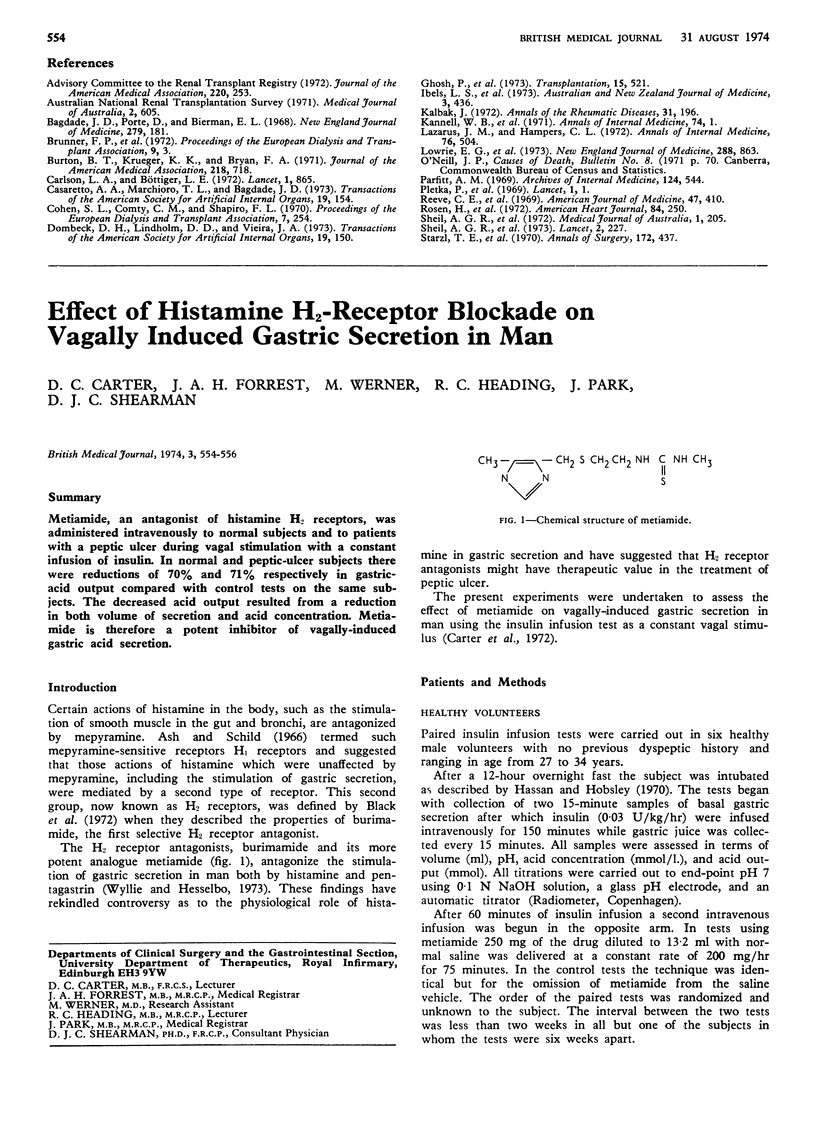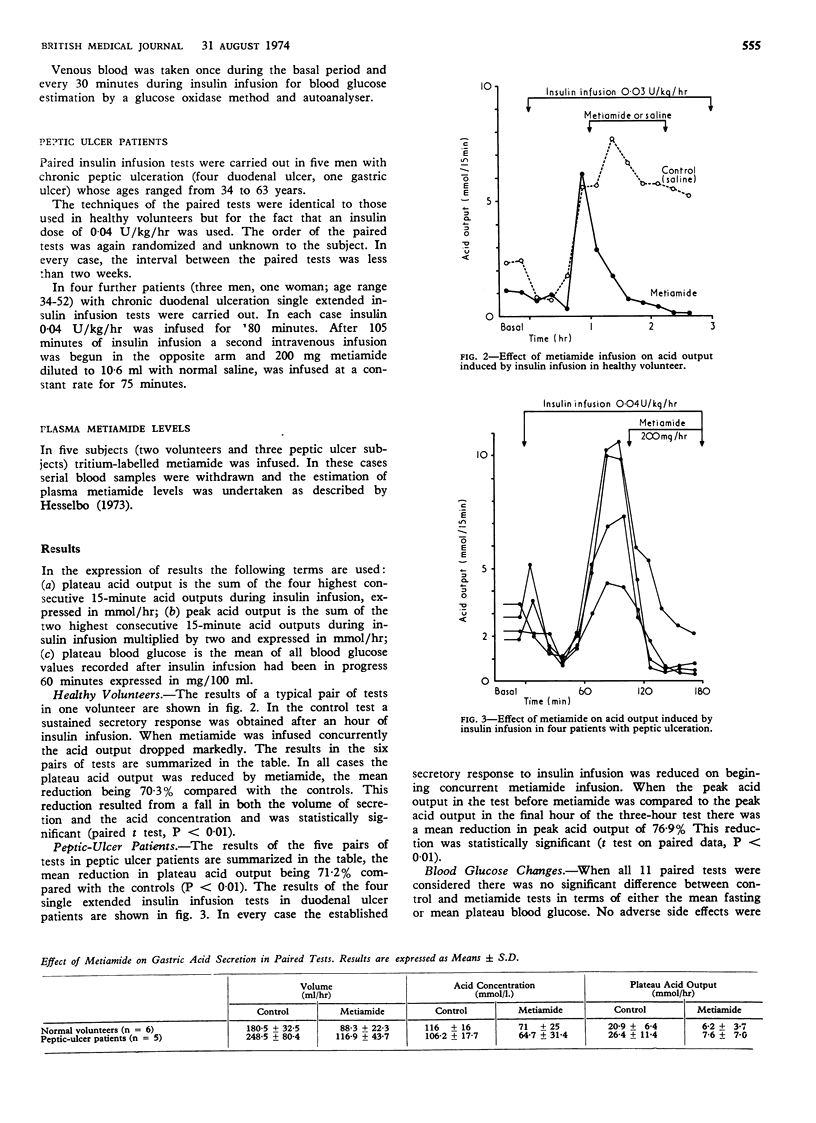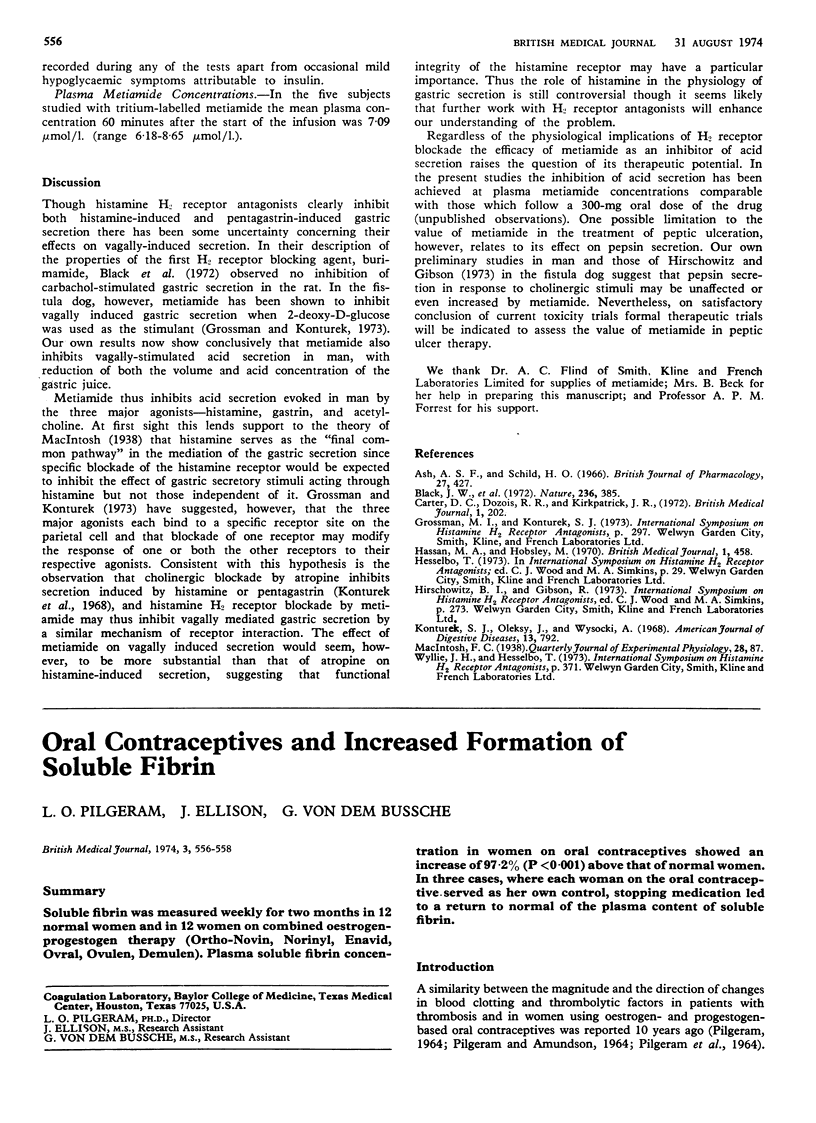Abstract
Metiamide, an antagonist of histamine H2 receptors, was administered intravenously to normal subjects and to patients with a peptic ulcer during vagal stimulation with a constant infusion of insulin. In normal and peptic-ulcer subjects there were reductions of 70% and 71% respectively in gastric-acid output compared with control tests on the same subjects. The decreased acid output resulted from a reduction in both volume of secretion and acid concentration. Metiamide is therefore a potent inhibitor of vagally-induced gastric acid secretion.
Full text
PDF


Selected References
These references are in PubMed. This may not be the complete list of references from this article.
- Ash A. S., Schild H. O. Receptors mediating some actions of histamine. Br J Pharmacol Chemother. 1966 Aug;27(2):427–439. doi: 10.1111/j.1476-5381.1966.tb01674.x. [DOI] [PMC free article] [PubMed] [Google Scholar]
- Black J. W., Duncan W. A., Durant C. J., Ganellin C. R., Parsons E. M. Definition and antagonism of histamine H 2 -receptors. Nature. 1972 Apr 21;236(5347):385–390. doi: 10.1038/236385a0. [DOI] [PubMed] [Google Scholar]
- Hassan M. A., Hobsley M. Positioning of subject and of nasogastric tube during a gastric secretion study. Br Med J. 1970 Feb 21;1(5694):458–460. doi: 10.1136/bmj.1.5694.458. [DOI] [PMC free article] [PubMed] [Google Scholar]
- Konturek S. J., Oleksy J., Wysocki A. Effect of atropine on gastric acid response to graded doses of pentagastrin and histamine in duodenal ulcer patients before and after vagotomy. Am J Dig Dis. 1968 Sep;13(9):792–800. doi: 10.1007/BF02233095. [DOI] [PubMed] [Google Scholar]


